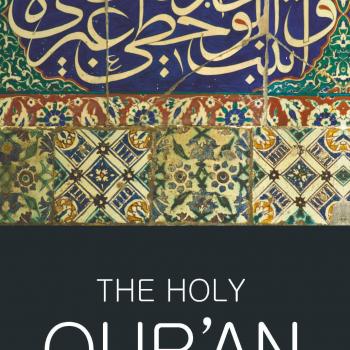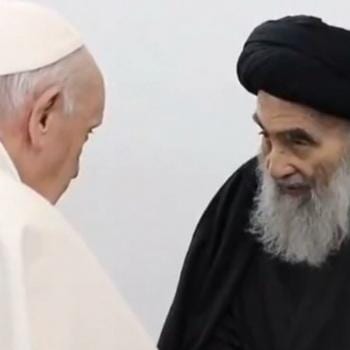Islam is the second largest religion in the world, consisting of about 1.5 billion adherents called Muslims. Only Christianity is larger, which has about 2.4 billion professing Christians, half of whom are Roman Catholic. Christianity is divided into tens of thousands of church denominations, whereas Islam is divided mostly into two sects: Sunni (ca. 85%) and Shiite (the rest). This division is due to a disagreement that arose immediately after Mohammed, Islam’s founder, died. It was about who would succeed Mohammed as Islam’s chief leader.
Sunni-dominated Saudi Arabia is the heartland of Islam. It has the two holiest cities in Islam–Mecca and Medina–where Islam originated. Saudi royalty is expected to be the guardian of the Kaaba in Mecca. yet in recent years there have been stampedes among the millions of worshippers circling the Kaaba that has resulted in hundreds of deaths during Islam’s holy month of Ramada.
The Kaaba is a cube-shaped building that houses a black stone. Muslims believe the Angel Gabriel gave this sacred stone to the Hebrew patriarch Abraham four thousands years ago. Thus, Muslims are required to pray five times per day at set times, wherever they are in the world, while kneeling toward Mecca because of the Kaaba there. And each Muslim who is financially capable is required to make at least one pilgrimage to the Kaaba in Mecca during Ramada in his or her lifetime.
But the Shiite, theocratic government of Iran accuses Saudi royalty of moral corruption and therefore incompetence in protecting Islam’s holy sites in Saudi Arabia, especially the Kaaba in Mecca. Thus, Iranian clerics and government officials sometimes publicly call for Saudi citizens to rise up and overthrow their government. To make matters worse, both nations are making major additions to their military arsenals, largely due to competition among each other. Last week Iran announced major, future building up of missile hardware right after signing the agreement with the U.S. and other nations concerning reducing its highly-graded uranium stockpiles that could be easily made into nuclear weapons.
Yesterday, Saudi Arabia executed 47 men on charges of terrorism, some of it dating back to the beginning of Arab Spring, in 2011. Some were members of al-Queda. These executions were conducted en masse by beheading, though they were not done in public as usual. They caused protests in some Middle Eastern nations, especially Iran. And the Iranian government condemned them because four of the men were Shiites.
Shiites are especially upset that these 47 executions included 56-year old Shiite cleric Sheikh Nimri al-Nimri. He was a native of eastern Saudi Arabia. When Arab Spring began in 2011 in North Africa and the Middle East, protests also emerged in eastern Saudi Arabia and Bahrain. These protesters, many of them young people, soon made Sheikh Nimri their unofficial leader.
In 2014, Saudi Arabia’s conciliatory King Abdullah died and hardline Sunni King Salman succeeded him. King Salman reportedly is escalating the sectarian rivalry between Sunni-dominant Saudi Arabia and its Shiite, theocratic neighbor, Iran.
The Saudi government accused Sheikh Nimri of advocating violence against the government. But Sheikh Nimri and his followers denied this. Many human rights organizations around the world are outraged by these mass executions. Amnesty International said of it, “Saudi Arabian authorities are using the guise of counterterrorism to settle political scores.”
In 2012, Nimri delivered a fiery, public sermon in which he alleged concerning Saudi Prince Nayef bin Abdulaziz, who recently had died, “He will be eaten by worms and suffer the torments of hell in the grave. The man who made us [Shiites] live in terror, shouldn’t we rejoice at his death?” That statement, quoted from today’s The New York Times, is probably what got Nimri executed since Prince Nayef’s son, Mohammed bin Nayef, had succeeded his father as Interior Minister, and this branch of Saudi government conducts executions.
In my next book that I’m writing about Bible prophecy, it will have a considerable amount of material about this sectarian and political divide in the Middle East and North Africa and where it is headed.












